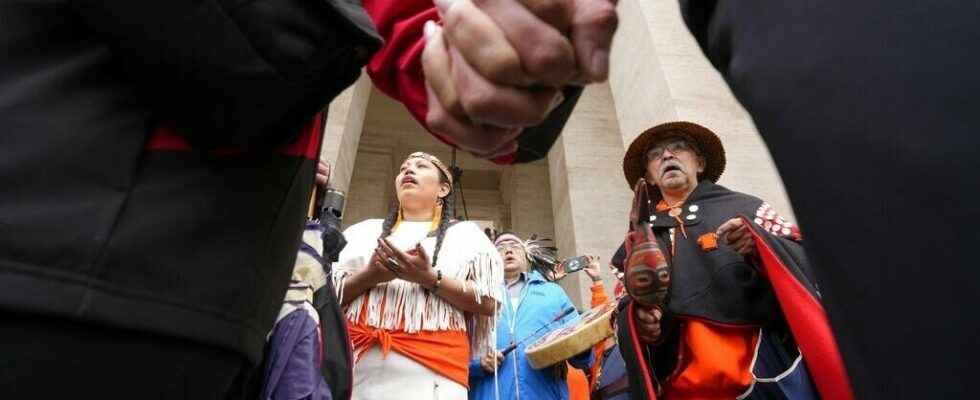The Canadian government on Wednesday appointed a special interlocutor for the management of the residential school scandal for Aboriginals, a year after the first discoveries of unmarked children’s graves which shed light on a dark page in the country’s colonial history.
With our correspondent in Toronto, Camille Feireisen
The Canadian government appoints Kimberly Murray from the Mohawk community of Kanesatake in Quebec as a special interlocutor on the Indian residential schools file, where she will be responsible, among other things, for liaising between governments, communities and Indigenous organizations regarding “ the identification, preservation and protection of graves and unmarked graves, including the possible repatriation of remains “.
Almost ten months after announcing the creation of this position, this appointment is welcomed by several First Nations advocacy associationsbecause it was she who led, in 2015, a commission devoted to the system of residential schools, described as cultural genocide.
First Nation Chief Rosanne Casimir Tk’emlups te Secwépemc in Kamloops, where the first graves were discovered in May 2021, sparking nationwide searches near residential schools says the gesture demonstrates that “ the mandate of the special interlocutor confirms this respect of the Canadian government vis-à-vis the
Special Interlocutor, Kimberly Murray, will open the door to important systemic, institutional and legal changes to protect and preserve unmarked burial sites. It will connect communities and government, and facilitate conversations pic.twitter.com/o4nCX02LCw
— Marc Miller (@MarcMillerVM) June 8, 2022
State Scandal
Over 150,000 Aboriginal children have been forced to attend these schools run by the Catholic Church and funded by the government between 1870 and 1997. For more than a year, Canada has been rocked by discoveries of over 1,300 unmarked children’s graves, found on the sites of these former boarding schools. Between the end of the 19th century and the 1980s, some 150,000 Indigenous children were forcibly recruited into more than 130 residential schools across the country, where they were cut off from their families, their language and their culture, and where they were victims of abuse.
Beginning in mid-June, Kimberly Murray will work with victims and affected Indigenous communities. She will be in charge of establishing links between provincial governments, communities and Aboriginal organizations, in order to recommend a legal framework to the Canadian government for the treatment of cases of missing children, graves and unmarked burials. This work, which will take place independently, should last two years with a first provisional report within a year.
► To read also: Visit of Pope Francis to Canada: a course contested by the First Nations
